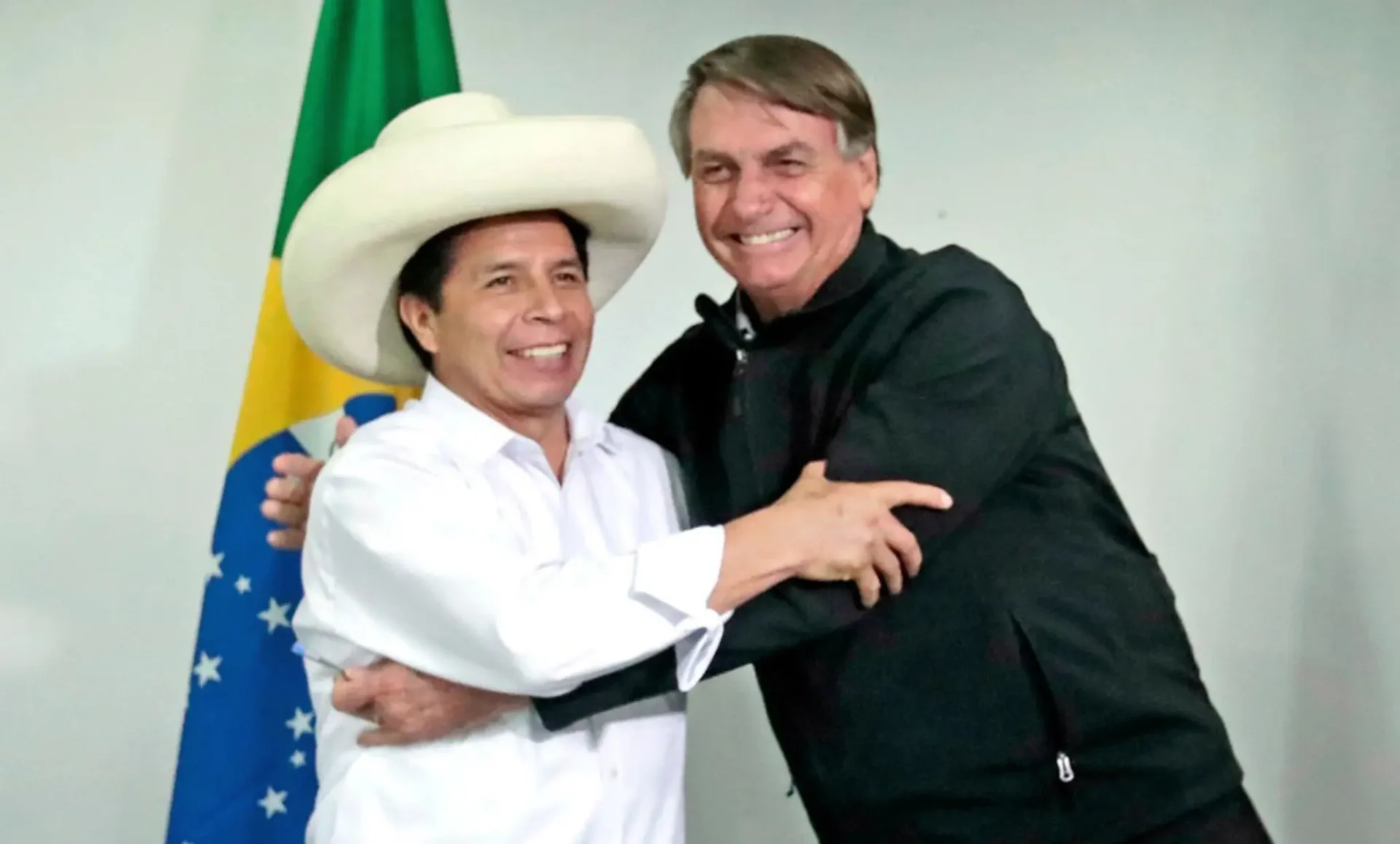On December 7, 2022, Pedro Castillo, then president of Peru, announced on national television the unconstitutional dissolution of the Congress of the Republic and the establishment of a national emergency government in order to avoid his dismissal by the legislative branch. This announcement, unilateral and without military support, resulted in his arrest and imprisonment a few hours later. Pedro Castillo was dismissed by the Congress and is currently in preventive detention, without having received a definitive sentence so far.
Around the same time, in Brazil, after the electoral defeat in the second round against Luiz Inácio Lula da Silva, the then President Jair Bolsonaro maintained a prolonged silence, interpreted as a sign of frustration and refusal to recognize the results. Previously, Bolsonaro claimed the existence of electoral fraud, although he never presented concrete evidence. Subsequently, the Brazilian Federal Police revealed a coup plot that included plans to assassinate the president-elect and other judicial authorities.
Although the two cases share the attempt to overthrow the constitutional order, they present significant differences. In Peru, Pedro Castillo was hastily and erroneously pushed by his closest collaborators, who convinced him that he faced imminent impeachment by Congress. The parliamentary opposition was trying, for the third time, to remove him from office; in the previous motions they had obtained only 46 and 55 votes, respectively, far below the 87 votes needed. The probability of reaching the required majority for the third motion was low, as the government controlled at least 30 votes that could block the opposition initiative.
In Brazil, Jair Bolsonaro implemented a pre-planned strategy: sowing doubts about the security of the electronic voting system, arguing that it was vulnerable to fraud and did not guarantee a clean electoral process. Despite the validation and proven efficiency of the system by electoral bodies, Bolsonaro did not present evidence to support his claims. On the contrary, he incited his supporters to disavow the results. This narrative paved the way to justify a coup d’état in case he was not reelected. On January 8, 2023, he mobilized his supporters, resulting in the destruction of the main seats of public power in the so-called Three Power Square. In the midst of the “spontaneous” chaos, Bolsonaro may have sought to justify an unconstitutional intervention.
In the Peruvian case, Pedro Castillo was immediately ousted from power, arrested and subjected to judicial proceedings. Bolsonaro, who had already finished his term, lost his presidential prerogatives but has not been arrested, although he faces multiple investigations. While the condemnation of Pedro Castillo was almost unanimous in Peru, in Brazil many relevant political actors, including the president of Congress, have preferred to remain silent and not explicitly condemn Bolsonaro’s coup initiative.
The charges in both cases are similar. Pedro Castillo faces charges of rebellion, for attempting to alter the constitutional order, conspiracy, and abuse of authority. As for Jair Bolsonaro, the charges include violent abolition of the rule of law, coup d’état, and participation in a criminal organization, in addition to other charges related to corruption.
In the process against Pedro Castillo it is considered that, although his repressive orders were ignored and he failed to carry out the self-coup, there is clear evidence of his attempt to break the constitutional order. His action was not a mere cogitation, but a concrete execution, as evidenced by his public declaration of dissolution of Congress. Even if he acted rashly or induced to error, he should bear some kind of criminal responsibility.
In the case of Jair Bolsonaro, the legal debate will be longer. It seeks to determine his degree of responsibility in the coup plot described in a report of more than 800 pages prepared by the Federal Police, which documents his participation through intermediaries, both in the formulation of the plan and in the execution of criminal actions. A central aspect of the debate will be whether their behavior transcends the mere intention to carry out a coup d’état, going as far as the operationalization of the coup d’état.
The theory of the domain of the fact, a figure of criminal law, could be applied in the case of Bolsonaro. This allows holding accountable those who have decisive power over a criminal act, even if they do not directly execute the material actions of the crime, as occurs in cases where leaders act through subordinates.
*Machine translation proofread by Janaína da Silva.












